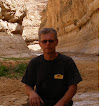27.06.2013 – 29.06.2013
The Journey: La Paz – Tiwanaku – Copacabana (266 km).
First a few facts: Tiwanaku is an important archaeological monument of the pre- period of Incas in South America, the place is a UNESCO World Heritage Site and is situated 72 km away from La Paz, it is also referred to as the "American Stonehenge" and "Baalbek of the New World."

The precise time of the construction and the builders of it are unknown. But it is believed that Tiwanaku`s current location was inhabited as early as 11,450 BC.
For Aymaras it was the Capital and is still is a sacred place . Here, too, every year on June 21 great Inti Raymi , or the Aymara New Year celebration takes place.
Actually - about the history of Tiwanaku there are so many different theories to read on the Internet and it's going to be more exciting and finally you remember that someone has to write the blog too , but then the day is already over and it is far too late. The next day you google again „Tiwanaku“, and you'll find new and new material (You can start here https://en.wikipedia.org/wiki/Tiwanaku).
Ok , in short , we can say that the different buildings come from different eras , such as the greatest – the seven- stepped pyramid of Akapana , in the middle of Tiwanaku, is probably built between 300-700 , and Akapana resembles more to a mountain than to a classic pyramid . Recent studies have shown that the pyramid remained unfinished. During the earlier years the pyramid has been ransacked and just demolished to get building materials for the town and the railway. Now it is again being restored.

The place was added on the UNESCO World Heritage Site in 2000.

The bottom three steps are restored . The size of the Pyramid is impressive, the base is almost square –
210 m x 194.4 m

There are temples next to the Pyramid. Kalasasaya Temple – also partially restored.


The Tiwanaku sun gate " Intipunku " - which was found 100 years ago from mud - is not in its original place.

The Tiwanaku calendar is in the upper part of the Gate. Viracocha , the image of Inca God - is up in the middle. Viracocha created the whole world ( universe, the sun, moon, stars, etc.)

American Stonhenge - 11 pillars belong to the Tiwanaku Calendar (the wall between the pillars has been restored and one pillar is missing. Actually the missing pillar was lying 230 meters away).




Defeated enemies .
A separate building is for the large -7.3 meters in height and 20 tons- statue of Pachamama (Bennett monolith ). It was taken from here to La Paz in 1932 and brought with a festive ceremony back again in March 2002. Only it was not allowed to take pictures there.

Tiwanaku parking lot – one of the last time coldest overnight places. In the morning at sunrise the ground was frosty .
About half a kilometer away there is another former Temple - Pumapunku.


The stone blocks are large. The greater has the length of 7.81 m, width of 5.17 and the average thickness is of 1.07 meters . The weight is considered to be 131 tons . And they have brought it here from the distance of 40-kilometers .
To visit Copacabana one must move back to La Paz and then to the direction of northwest.

Next a "ferry" ride across Lake Titicaca.

First a big bus drives on the ferry. The barge will remain on the surface, the first end sinks deeper, but I guess it does not matter. Next I also ride on, as one car will still fit there and the main thing is that the rear wheels are not over the edge in the water . I hope that the ferry does not sink, but the hope is in vain, the barge does not move at all, because it is already stuck at the bottom .

The men take big sticks and the ferry is pushed away from the shore.


In the coming barge there are domestic animals.


While writing about Lake Titicaca it should definitely be added that it is "The Highest navigable lake in the world, with a surface elevation of 3.812 m ."

Copacabana Church – Basilica of Our Lady of Copacabana.


View of Copacabana from the lake. There are various legends.about the name of the city. That the name comes from the Aymara language, and " kota kahuana " means "view of the lake ". Or maybe - "Kotakawana " is the God of the fertility in the ancient Andean mythology, the equivalent to the classical Greek goddess Aphrodite or the Roman Venus http://en.wikipedia.org/wiki/Copacabana,_Bolivia





The people living on the lake will be discussed in the next post.



No comments:
Post a Comment